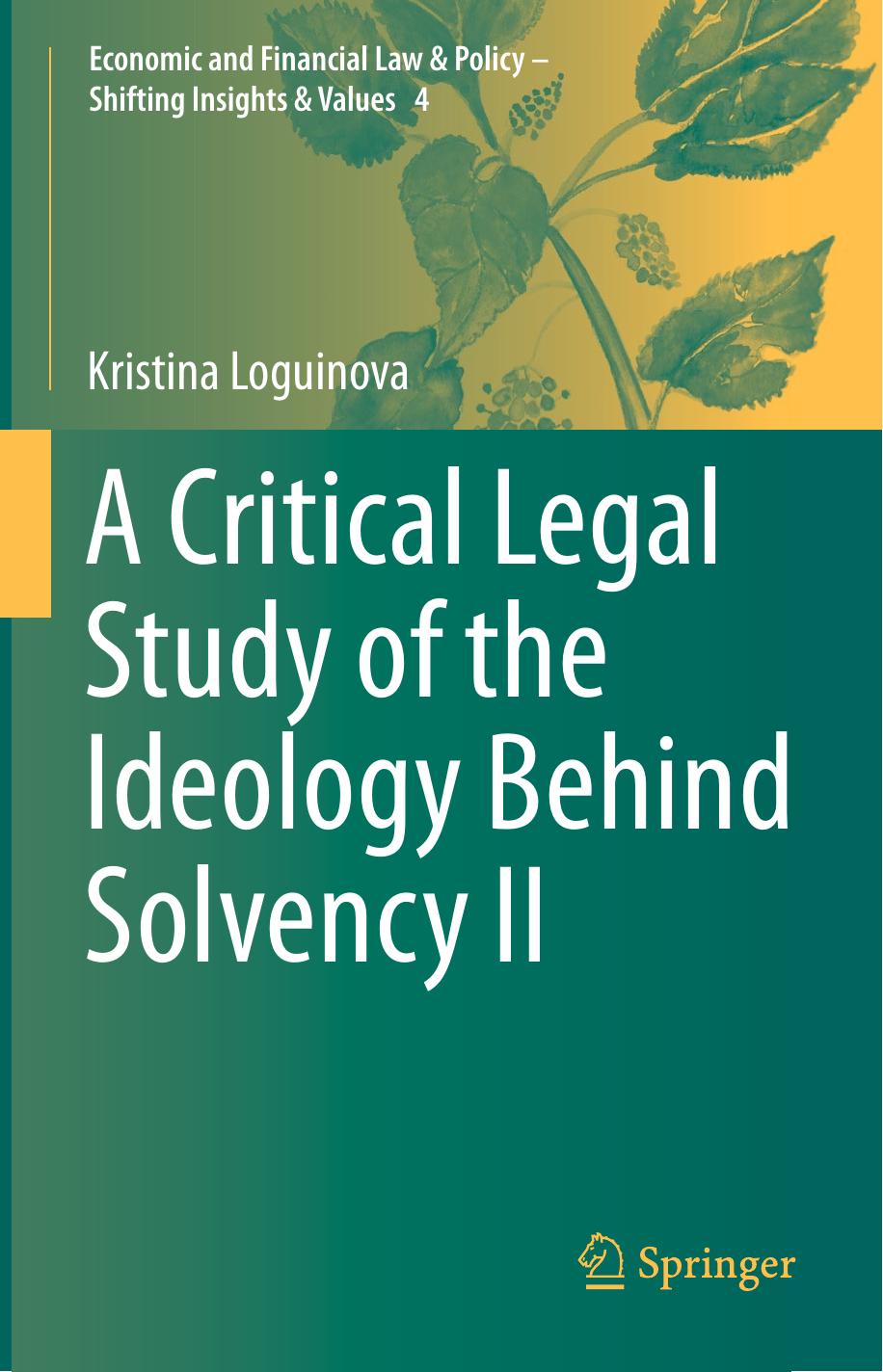A Critical Legal Study of the Ideology Behind Solvency II by Kristina Loguinova

Author:Kristina Loguinova
Language: eng
Format: epub, pdf
ISBN: 9783030263577
Publisher: Springer International Publishing
598Purposely, I have left the notion of law being a socially constructed instrument for conflict resolution aside in order not to have to deal with the counterargument that law creates these conflicts in the first place. For example, crimes against property like theft (Title IX of the Belgian Criminal Code) would not exist without the legal creation of property (Art. 544 of the Belgian Civil Code) in the first place (keeping this trail of thought in mind, one does wonder as to what kind of ideology lies at the basis of Judaism and Christianity if the word steal in “Thou shalt not steal ((one of the Ten Commandments)) is interpreted to relate to property))—for this reason (academic) Marxists like to say that “private property is theft”: Austin (1998), p. 99. This counterargument namely implies that law is a sham after all—a way of looking at law not fully supported in this monograph. Moreover, it implies that “[i]t is society that prepares the crime (…) [and then it is society that] punishes severely those who commit the crime which she has herself prepared.”: Bonger (1916), p. 672. In this monograph law is regarded an instrument which affirms and legitimates interests in order to control society. Interests of different human beings can indeed be in conflict which can be solved by law’s affirmation and legitimation of a certain set of interests over others but this does not mean that law is necessarily the root of all evil. Law, as a socially constructed instrument, can be used to create conflict but it does need to do so. It can also be used as an instrument to affirm and legitimate interests in order to avoid conflict (as much as possible) depending on whether politicians want to achieve such a goal. It can be used to solve the conflict of (economic) interests and to steer human beings into the direction to act “so that every man shall always have more interest in being useful to his fellows than in harming them.”: Bonger (1916), p. 671. In a way my midpoint stance is translatable to the main trend in the consensus and conflict debate about law in sociology today. Namely, in sociology, the consensus-orientated stand views law as an unbiased framework holding society together on the basis of shared values. The conflict-orientated stand takes issue with this view and argues that law is based on the values and aspirations of culturally or economically dominant groups instead of shared values. In turn, these culturally or economically dominant groups impose their own standards and worldviews on subordinate groups, establishing and legitimating thereby their own power. “Although one might assume that ‘consensus’ and ‘conflict’ theorists are forever talking past each other, or are engaged in bitter political arguments, the main trend in social theory in the past fifty years has been in fact towards a compromise or synthesis between the two positions.”: Banakar and Travers (2013), p. 5 (personal added underlineation). On a different note, during my research I came across scholars who defined law in a similar fashion as myself.
Download
A Critical Legal Study of the Ideology Behind Solvency II by Kristina Loguinova.pdf
This site does not store any files on its server. We only index and link to content provided by other sites. Please contact the content providers to delete copyright contents if any and email us, we'll remove relevant links or contents immediately.
International Integration of the Brazilian Economy by Elias C. Grivoyannis(57413)
The Radium Girls by Kate Moore(10924)
Turbulence by E. J. Noyes(7061)
Nudge - Improving Decisions about Health, Wealth, and Happiness by Thaler Sunstein(6645)
The Black Swan by Nassim Nicholas Taleb(6209)
Pioneering Portfolio Management by David F. Swensen(5619)
Rich Dad Poor Dad by Robert T. Kiyosaki(5172)
Zero to One by Peter Thiel(4840)
Man-made Catastrophes and Risk Information Concealment by Dmitry Chernov & Didier Sornette(4752)
Secrecy World by Jake Bernstein(3793)
Millionaire: The Philanderer, Gambler, and Duelist Who Invented Modern Finance by Janet Gleeson(3577)
Skin in the Game by Nassim Nicholas Taleb(3486)
The Age of Surveillance Capitalism by Shoshana Zuboff(3435)
The Money Culture by Michael Lewis(3295)
Skin in the Game: Hidden Asymmetries in Daily Life by Nassim Nicholas Taleb(3277)
Bullshit Jobs by David Graeber(3193)
The Dhandho Investor by Mohnish Pabrai(3181)
The Wisdom of Finance by Mihir Desai(3092)
Blockchain Basics by Daniel Drescher(2901)
